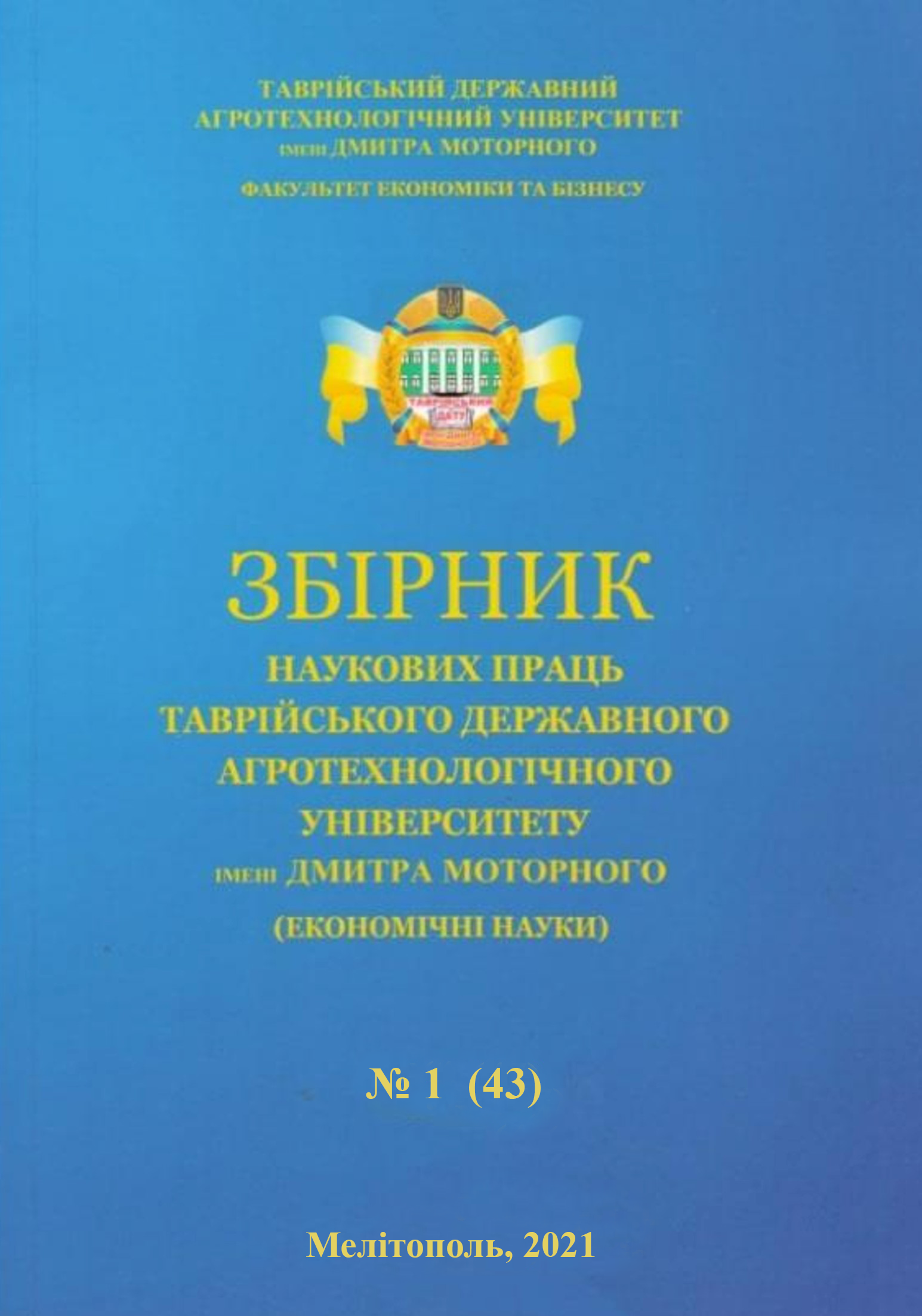АКТУАЛЬНІСТЬ SOFT SKILLS В ПРОЦЕСІ ПРОФЕСІЙНОГО РОЗВИТКУ СПІВРОБІТНИКІВ ТА УПРАВЛІННЯ ЗМІНАМИ КОМПАНІЇ
Анотація
В статті розглянуті поняття soft skills та hard skills та їх значущість для розвитку спеціалі-ста в професійній сфері. Надані ключові характеристики «м’яких» та «твердих» компетенцій. Проведений контент аналіз дефініцій «soft skills» и «hard skills»,відмічені загальні та відмінні риси в підходах.
Посилання
Гоулман, Д. Эмоциональное лидерство: Искусство управления людьми на основе эмоционального интеллекта / Д. Гоулман, Р. Бояцис, Э. Макки; пер. с англ. - 3- изд. - М.: Альпина Бизнес Букс, 2018. - 301 с.
Зінченко А.Г., Саприкіна М.А. Навички для України 2030: погляд бізнесу. Київ, 2016. 36 с.
Портланд, Ю. Что такое soft skills и почему они так важны для карьеры? [Электронный ресурс]. Режим доступа: http://dnevnyk-uspeha.com/rabota-ikarera/chto-takoe-soft-skills-i-pochemu-oni-tak-vazhnyi-dlya-kareryi.html (Дата обращения: 11.12.2016).
Милевски И. Личностное развитие успешного человека. Принципы soft skills – гибких навыков человека. – URL: http://ecouniver.com., 2020.
Meyer, B.B. Emotional intelligence: A theoretical overview and implications for research and professional practice in sport psy-chology / B.B. Meyer, T.B. Fletcher // Journal of Applied Sport Psychology. - 2017. - №19. - P. 1-13. 6. Мортен Хансен. Коллаборация. Как перейти от соперничества к сотрудничеству / Мортен Хансен // Издательство: Манн, Иванов и Фербер. Серия книг МИФ. Бизнес, 2019, 288 с.
Сосницкая, О. SOFT SKILLS: мягкие навыки твердого характера [Электронный ресурс]. Режим доступа http://be-st.ru/ru/blog/13 (Дата обращения: 11.12.2016).
Тарп Твайла. Привычка работать вместе. Как двигаться в одном направлении, понимать людей и создавать настоящую команду/Тарп Твайла // Издательство: Манн, Иванов и Фербер.2017, 208 с.
Шипилов, В. Перечень навыков soft-skills и способы их развития [Электронный ресурс]. Режим доступа http://www.cfin.ru/management/people/dev_val/softskills.shtml (Дата обращения: 11.12.2016).
Del Carpio, Ximena, Olga Kupets, Noёl Muller, and Anna Olefir. 2017. Skills for a Modern Ukraine. Overview booklet. World Bank, Washington, DC. License: Creative Commons Attribution CC B Y 3.0 IGO.
References: 1. Houlman, D. (2018) Emotsiyne liderstvo: Mystetstvo upravlinnya lyudʹmy na osnovi emotsiynoho intelektu [Emotsiyne liderstvo: Mystetstvo upravlinnya lyudʹmy na osnovi emotsiynoho intelektu ] / D. Houlman, R. Boyatsis, E. Makki; textbook per. z anhl. - 3 vyd. - M .: Alʹpina Biznes Buks, 301 p.
Zinchenko, A.H., Saprikina, M.A. (2016) Navychky dlya Ukrayiny 2030: pohlyad biznesu, Kyyiv, 36 p.
Portland, Y.(2016) Shcho take soft skills i chomu vony tak vazhlyvi dlya kar'yery? URL: http://dnevnyk-uspeha.com/rabota-ikarera/chto-takoe-soft-skills-i-pochemu-oni-tak-vazhnyi-dlya-kareryi.html.
Milevsʹkyy, I. (2020) Osobystisnyy rozvytok uspishnoyi lyudyny. Pryntsypy soft skills - hnuchkykh navychok lyudyny/ Milevsʹkyy I. URL: http://ecouniver.com.
Meyer, B.B., Fletcher, T.B. (2017) Emotional intelligence: A theoretical overview and implications for research and profession-al practice in sport psychology. Journal of Applied Sport Psychology, №19, pp. 1-13.
Morten, Khansen (2019). Kolaboratsiya. Yak pereyty vid supernytstva do spivpratsi [Kolaboratsiya. Yak pereyty vid superny-tstva do spivpratsi] / Morten Khansen // textbook - Vydavnytstvo: Mann, Ivanov i Ferber. Seriya knyh MIF. Biznes, 288 p.
Sosnytsʹka, O. (2016) SOFT SKILLS: m'yaki navychky tverdoho kharakteru URL: http://be-st.ru/ru/blog/13.
Tarp, Tvayla. (2017)Zvychka pratsyuvaty razom. Yak rukhatysya v odnomu napryamku, rozumity lyudey i stvoryuvaty spravzhnyu komandu. textbook - Vydavnytstvo: Mann, Ivanov i Ferber, 208 з.
Shipilov, V. (2016) Perechen' navykov soft-skills i sposoby ikh razvitiya / Shipilov V. URL: http://www.cfin.ru/management/people/dev_val/softskills.shtml (Data obrashcheniya: 11.12.2016).
Del Carpio, Ximena, Olga Kupets, Noёl Muller, and Anna Olefir. (2017). Skills for a Modern Ukraine. / Del Carpio, Ximena, Olga Kupets, Noёl Muller, and Anna Olefir. Overview booklet. World Bank, Washington, DC. License: Creative Commons Attribution CC B Y 3.0 IGO.

